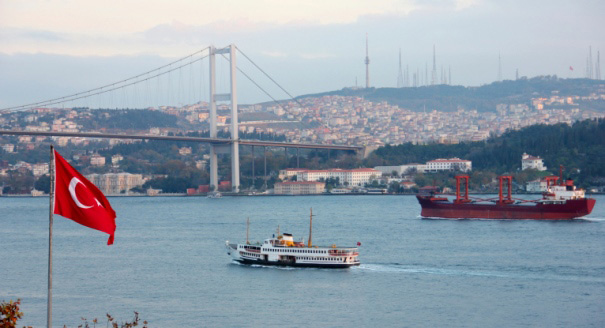In the normal course of democracy, local elections are about local issues. Yet Turkey’s municipal elections on March 30 became a referendum on one man who was not even a candidate: Prime Minister Recep Tayyip Erdoğan. From this standpoint, he scored a big victory—“an Ottoman slap,” as he said, in the face of his conservative opponents. The prime minister also demonstrated that he is, more than ever, a master tactician of the ballot box.
Where do these elections leave Mr. Erdoğan and his country from a Western perspective?
The price of the victory for Turkish democracy is heavy. There were more allegations of ballot rigging than ever before, widespread electricity cuts and hacking of opposition websites, and challenges to the results in Ankara.
More importantly, after a divisive campaign narrative, the prime minister gave a speech that mixed conciliatory words with promises of revenge, which a shocked New York Times editorial called “deeply disturbing and undemocratic.” A victory is a victory, granted, but the upshot of this forceful win is that Turkey’s democratic system has emerged looking somewhat damaged by the storm.Audio tapes that surfaced before the elections revealing allegations of graft among top politicians, direct influence over the media, and political meddling in the judiciary have not been investigated—nor denied. They have just been put aside, while evidence seems to have been scattered.
At the same time, major components of Turkey’s rule-of-law architecture have been dismantled. There is little hope of Turkey returning to normalcy and accountability anytime soon. The likely course of action is that the leadership of the ruling Justice and Development Party (AKP) will continue to deny these allegations and to adopt “anticonspiracy” methods against the police, the judiciary, and the media for as long as necessary. For outside observers, Turkey now looks like a badly shaken democracy.
Recep Tayyip Erdoğan has played so heavily on Turkey’s polarization since last spring’s Gezi Park protests and the corruption scandal that erupted on December 17 that it is hard to see how the many different strands of Turkey society can now be reconciled. In populist politics, polarization is often a one-way street, and it now looks like the only course available for the prime minister.
During the election campaign, Alevis, secularist opposition politicians, journalists, and judges were hit hard by the AKP, but they remain an integral part of Turkish society. Estranging them for the sake of a comfortable percentage in these or in future elections does not bode well for the country’s harmony. Indeed, such moves are perceived as a worrying trend by the West and NATO. Today, no one is cheering in Washington, Berlin, or Brussels.
The municipal election campaign was also the theater for rumblings in the foreign policy field. On Egypt, Syria, and missile defense, the Turkish prime minister’s most recent actions have been at odds with the views of his Western allies, if not with the country’s own commitments. Mr. Erdoğan’s victory is unlikely to lead to more moderation on these hot topics, nor to a less doctrinal narrative. As a result, Turkey may remain isolated in its own region. Again, this has Western capitals perplexed.
It will take some time to fully assess the fallout from the March 30 elections. But in the immediate future, the results leave Turkey’s rule of law far from where it was a year ago, and even further away from where it should be given the country’s stated ambitions.
The real losers from the elections are Turkish citizens and Turkey as an actor in the wider world—although many of the country’s leaders might not see it that way because, like the prime minister, they view the vote in terms of “us against them.” In the short and medium term, restoring Turkey’s social harmony at home and image abroad is the major challenge for conservative political forces and the country’s business circles.
On the international stage, the bottom line is this: despite winning big at home, Mr. Erdoğan has lost prestige abroad. The high point of May 16, 2013, when the prime minister was hosted for both lunch and dinner at the White House, is now a distant memory. His statement on March 30 that “we have the democracy the West is longing for” cannot be more remote from Western perceptions.
Mr. Erdoğan’s international standing is much lower today than three or four years ago. This is not unprecedented in international relations: for a long time, the European Council counted a cleanly elected Silvio Berlusconi among its heads of government. He was a member of the club with no questions asked, but very few fellow members would befriend him or even have their photograph taken with him. They each had their own ballot box, after all.
All politics are local, and realpolitik is real. It is obvious that Turkey’s Western interlocutors, after taking note of the prime minister’s victory, will still talk and deal with him—but there will be no empathy anymore, and perhaps less substance. They may even continue to dine with him, but with a much longer spoon.







